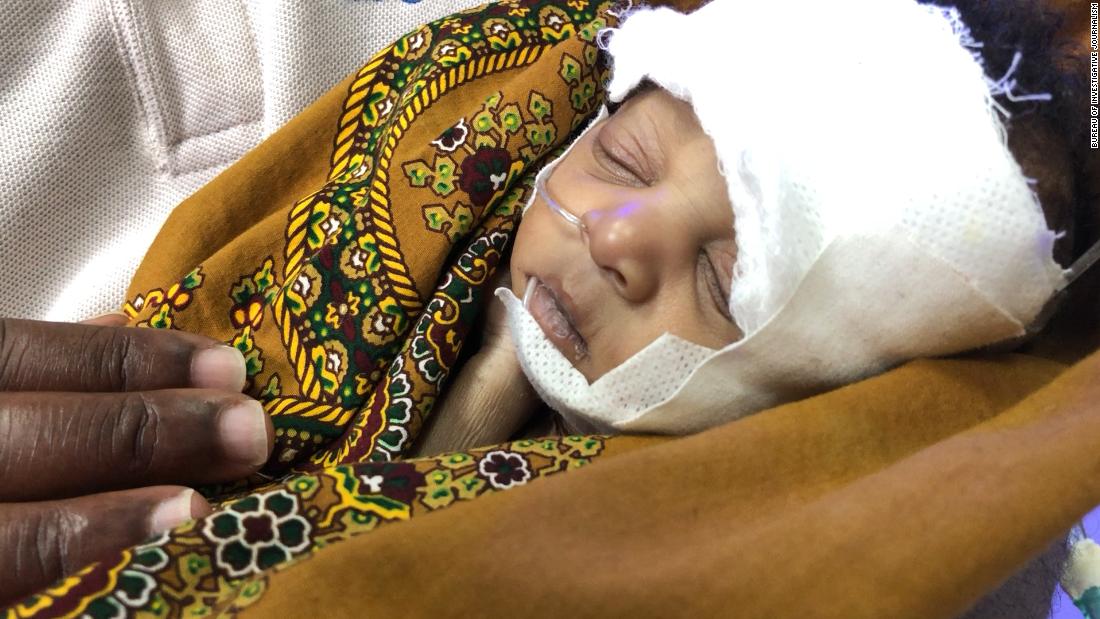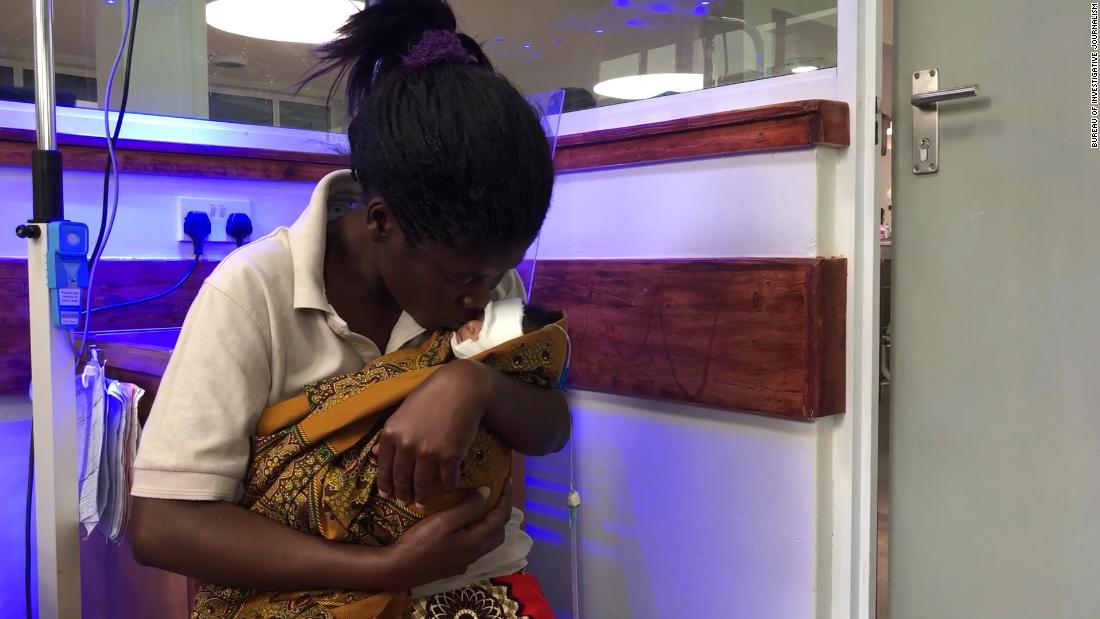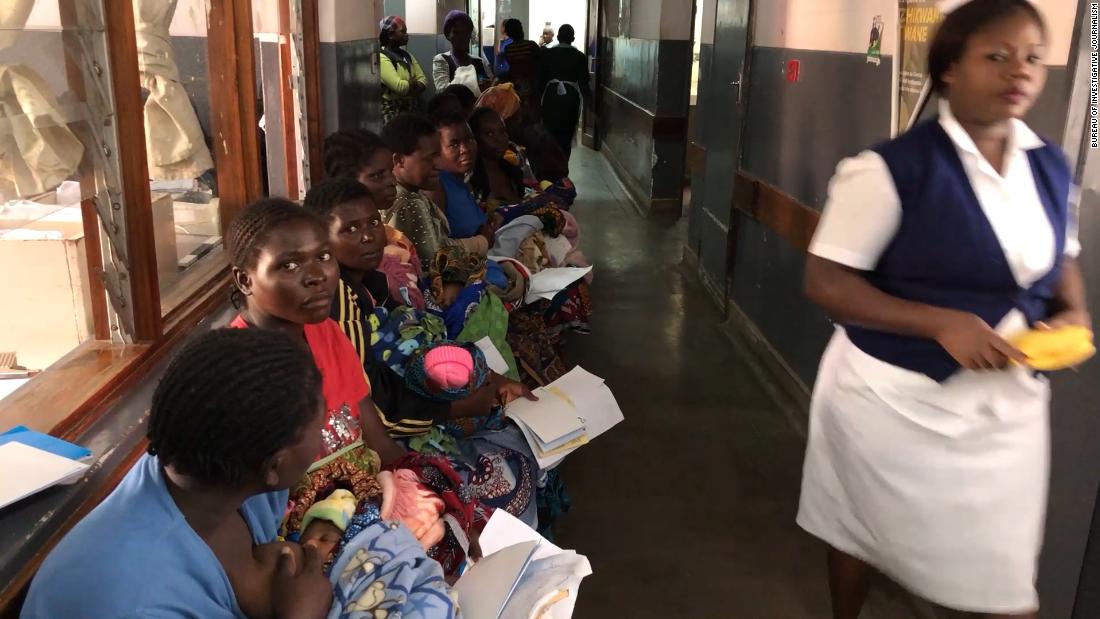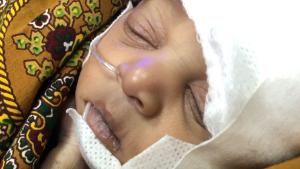Scourge of superbugs killing Malawi's babies
Malawi (CNN)In a sweltering room in the corner of the Chatinkha nursery in Queen Elizabeth Central Hospital in Blantyre, Malawi, Lilian Matchaya is expressing milk.
Her daughter, Abigail, is nearby, lying in a wooden cot with a UV light overhead keeping her at the right temperature. Her head wrapped in a bandage, Abigail has a plastic feeding tube going into her nose.
Matchaya, 38, inserts a syringe of breast milk into the tube, and it travels slowly down the translucent pipe. The sounds of infants crying, machines beeping and nurses pushing trolleys fill the ward.

Abigail Matchaya weighed just 3 pounds at birth, having been born prematurely, and soon developed sepsis.
Abigail was born prematurely at seven months and weighed just 1.8 kilograms (3 pounds) at birth, little more than a bag of flour. She needed an injection of aminophylline, which dilates the lung's cells, to help her breathe, and the day after her birth, nurses found her passed out with blood in her stool.
Babies, especially those born prematurely, are especially vulnerable to infection, as their immune systems haven't developed properly. Doctors suspected that Abigail had sepsis, a serious and potentially fatal condition in which bacteria get into the bloodstream. In response, the body's immune system goes into overdrive, and organs begin to shut down.
Abigail was given two antibiotics, penicillin and gentamicin, a combination meant to kill a wide range of bacteria. The drugs didn't seem to work, and she was soon given ceftriaxone and metronidazole, but there was still no improvement.
Her medical notes state that she then became floppy and passed out once more.
Lab results revealed that she was infected with a drug-resistant form of Klebsiella. The bacteria were resistant to most of the drugs Abigail had been given, meaning the medications were not working to kill her infection.
For four days, she had been given ineffective drugs.
For every hour that a baby in septic shock is given ineffective drugs, the chance of survival decreases by 7.6%, one study found. Dr. Kondwani Kawaza, a neonatologist at the Chatinkha nursery, said that even if the baby doesn't die, sepsis can cause disabling complications such as brain damage, meningitis and impairment to vital organs like the kidneys and the liver.
Doctors at the hospital also face another problem: The antibiotics they needed to treat Abigail's superbug are expensive and not part of Malawi's standard drug regimen, meaning they're not always available in the hospital.
On this occasion, Abigail was lucky: The pharmacy had one of the drugs they needed, amikacin, which can be given for only short periods, as it can trigger deafness as well as kidney and nerve damage.
Abigail was promptly given amikacin, after which her family faced a waiting game.
"The first thing I do when I wake up daily is to pray for my baby to get well. Then I check on her with the hope that she will be OK," said Matchaya, a soft-voiced housewife, through an interpreter. She lives with her husband, a teacher, and three sons in Nancholi, on the outskirts of Blantyre.

Lilian Matchaya holds her daughter, Abigail, praying for her to get better.
According to Kawaza, 20% to 40% of infections his team diagnoses are now resistant to antibiotics. The proportion was a lot lower five years ago, he said.
"Four patients grew Klebsiella in this ward alone in a single week, where in the past, we would say it would be for the whole month," he said. "It's becoming a bigger and bigger problem."
A nation in crisis
Malawi is one of the poorest countries in the world, ranking 170th out of 188 on the United Nations' human development index. More than 70% of its 18 million people survive on less than $1.90 a day, the international benchmark of poverty.
Most Malawians do not own televisions, cars or phones or have internet. In rural areas, people grow their own food.
And now, the country is facing an epidemic of infections causing sepsis, one of the leading causes of death among newborns. It killed nearly 20% of them in 2016; by comparison, in the UK, sepsis is responsible for less than 2% of infant deaths.
A combination of factors, all related to poverty, mean the percentage of babies dying of sepsis has barely fallen since 2000 despite improvements in the health care system.

Mothers and babies at Queen Elizabeth Central Hospital in Blantyre wait for treatment.
To make things worse, these figures are thought to be vast underestimates, as most health care facilities do not have the tests to diagnose sepsis.
Across Malawi, it is common to find mothers who have lost a child.
Malnutrition and a high burden of diseases such as HIV and malaria mean mothers and babies' immune systems are even weaker, so they catch infections a healthy body might easily quash.
This is all further fueled by the fact that the majority of Malawians don't have running water, so keeping clean is difficult, and soap is expensive. Many lack education on the importance of washing their hands, how to hygienically prepare food or how to change their baby's diaper, and not many can afford to go to a doctor when they become ill.
More than half of the country's health care facilities are also failing to meet World Health Organization standards on water and sanitation facilities, according to UNICEF. Even Queen Elizabeth hospital, Malawi's biggest, does not have running water in every room.
Many hospitals report "stockouts," periods when supplies like soap, chlorine, bleach and sterile gloves run out.
This culmination of poor hygiene means there is a constant cycle of infection and, in turn, a constant need for antibiotics, whose overuse has now fueled resistance.
For example, a three-month spike in sepsis rates from October occurred at the same time as a shortage of chlorhexidine, an antiseptic put on a baby's umbilical cord to prevent infection, said Wezi Kalumbu, an adviser on child health for the Organized Network of Services for Everyone's Health, a USAID-funded program to improve health care in 16 districts of Malawi.
Antibiotic resistance: An old problem with new ramifications
News Courtesy: www.cnn.com











